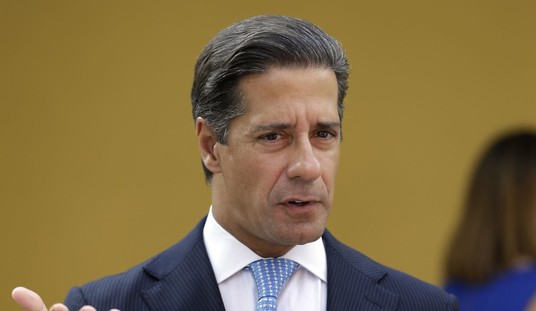Radio talk show host Mark Levin blew apart the media narrative that Hillary Clinton “broke email rules” at the State Department.
Wednesday’s release of the State Department’s Inspector General emphasized Clinton’s violation of internal email policies, but Levin went right to the core of the matter explaining that these “policies” are in place because of federal law:
“You’ve heard by now, Hillary Clinton violated email rules. What? There’s email rules? Thats how Politico headlined their breaking story. ‘State Dept watchdog: Clinton violated email rules.’ No. She didn’t violate email rules, she violated federal law. ‘The State Department Inspector General concluded that hc didn’t comply with the agency’s policy on records.’ Guilty. GUILTY! She’s guilty of violating a federal law. It’s not just the State Department that comes up with these policies. These policies are put in place to undergird the federal records act.”
On his nightly Levin TV webcast, Levin went on to dispel any notion the Clinton campaign might assert that the former Secretary of State was unaware that her use of an exclusive, private, unsecured email address to conduct all of her government business was a violation of policy. After all, Levin asserted, “she’s been around with us for quite some time.”
Indeed, from her time as First Lady int he 1990’s to her term as a US Senator from New York and finally her stint as Secretary of State, Clinton has been fully aware of federal record keeping laws. In fact, Washington Free Beacon reported last year that Clinton signed an NDA at the start of her time at the State Department acknowledging the very laws she is now clearly in violation of.
For those of you keeping score at home, the Federal Records Act lays it out pretty clearly: (18 U.S. Code § 2071)
(a) Whoever willfully and unlawfully conceals, removes, mutilates, obliterates, or destroys, or attempts to do so, or, with intent to do so takes and carries away any record, proceeding, map, book, paper, document, or other thing, filed or deposited with any clerk or officer of any court of the United States, or in any public office, or with any judicial or public officer of the United States, shall be fined under this title or imprisoned not more than three years, or both.
(b) Whoever, having the custody of any such record, proceeding, map, book, document, paper, or other thing, willfully and unlawfully conceals, removes, mutilates, obliterates, falsifies, or destroys the same, shall be fined under this title or imprisoned not more than three years, or both; and shall forfeit his office and be disqualified from holding any office under the United States. As used in this subsection, the term “office” does not include the office held by any person as a retired officer of the Armed Forces of the United States.
That is the federal law in question. It covers all federal agencies. Each individual agency (The Department of State, in this case) then implements rules and policies for all employees so that their operations are in accordance with the law. The rules have een violated, therefore the law was broken.
It’s as simple as that.









Join the conversation as a VIP Member